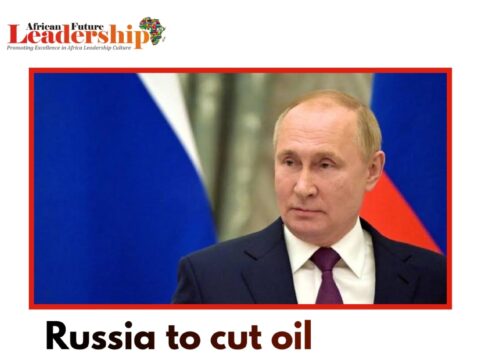Russia will cut oil production by 500,000 barrels a day from March after the economy plunged the price of oil products.
Oil prices rose after Russian Deputy Prime Minister Alexander Novak announced the cut.
The European Union, G7 nations and Australia have capped how much they will pay for oil and refined products.
These are part of western sanctions designed to put pressure on Russia over its war in Ukraine.
READ MORE: Controversial European Super League returns with new plans
Russia is one of the largest oil producers in the world. Its planned cuts sent the price of Brent crude, the international benchmark for oil prices, up by 2.2% to $86 per barrel.
Western countries have been introducing tougher oil sanctions on Russia as its invasion on Ukraine continues, as part of efforts to limit the Kremlin’s gain from sales and reduce its ability to finance the war.
Most recently, an EU ban on seaborne imports from Russia of refined oil products, such as diesel, came into force this week. Traders who do not comply with these sanctions have access to tanker fleets and insurance markets restricted.
In the case of the oil price cap, countries stopped the use of Western-supplied maritime insurance, finance and brokering for seaborne Russian oil priced above $60 per barrel from 5 December.
In response, Russia has banned any deals involving the cap.
Mr Novak said: “As of today, we are fully selling the entire volume of oil produced, however, as stated earlier, we will not sell oil to those who directly or indirectly adhere to the principles of the ‘price cap’.
“In this regard, Russia will voluntarily reduce production by 500,000 barrels per day in March. This will contribute to the restoration of market relations.”
So far, according to Mr Novak, Russia has been able to find buyers for all of its output, despite the sanctions.
Industry sources told the BBC that hundreds of tankers have been acquired by companies in recent weeks, creating a so-called “dark fleet” prepared to carry Russian crude at higher prices.
The last big fall in Russian oil output was in April last year, when it collapsed by nearly 9% following the introduction of Western sanctions over Ukraine.
But since then, Russia has managed to set up logistics chains for its oil sales, mostly in Asia. Last year, Russian oil production rose by 2% to 10.7 million barrels per day.




